-
 Bangladesh begins three days of mass political rallies
Bangladesh begins three days of mass political rallies
-
Children learn emergency drills as Kashmir tensions rise

-
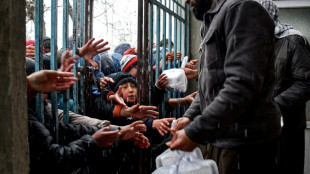 Millions of children to suffer from Trump aid cuts
Millions of children to suffer from Trump aid cuts
-
Veteran Wallaby Beale set for long-awaited injury return
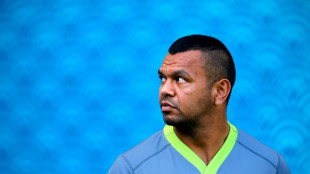
-
 Syria's Druze take up arms to defend their town against Islamists
Syria's Druze take up arms to defend their town against Islamists
-
Tesla sales plunge further in France, down 59% in April

-
 US calls on India and Pakistan to 'de-escalate'
US calls on India and Pakistan to 'de-escalate'
-
Israel reopens key roads as firefighters battle blaze

-
 Europe far-right surge masks divisions
Europe far-right surge masks divisions
-
James will mull NBA future after Lakers playoff exit

-
 Ukraine's chief rabbi sings plea to Trump to side with Kyiv
Ukraine's chief rabbi sings plea to Trump to side with Kyiv
-
Australian mushroom meal victim 'hunched' in pain, court hears

-
 Lakers dumped out of playoffs by Wolves, Rockets rout Warriors
Lakers dumped out of playoffs by Wolves, Rockets rout Warriors
-
Booming tourism and climate change threaten Albania's coast

-
 US reaching out to China for tariff talks: Beijing state media
US reaching out to China for tariff talks: Beijing state media
-
Tariffs prompt Bank of Japan to lower growth forecasts

-
 Kiss faces little time to set Wallabies on path to home World Cup glory
Kiss faces little time to set Wallabies on path to home World Cup glory
-
Serbian students, unions join forces for anti-corruption protest

-
 Slow and easily beaten -- Messi's Miami project risks global embarrassment
Slow and easily beaten -- Messi's Miami project risks global embarrassment
-
Fan in hospital after falling to field at Pirates game

-
 Nuclear power sparks Australian election battle
Nuclear power sparks Australian election battle
-
Tokyo stocks rise as BoJ holds rates steady

-
 Bank of Japan holds rates, lowers growth forecasts
Bank of Japan holds rates, lowers growth forecasts
-
'Sleeping giants' Bordeaux-Begles awaken before Champions Cup semis

-
 Napoli eye Scudetto as Inter hope for post-Barca bounce-back
Napoli eye Scudetto as Inter hope for post-Barca bounce-back
-
Germany's 'absolutely insane' second tier rivalling Europe's best

-
 PSG minds on Arsenal return as French clubs scrap for Champions League places
PSG minds on Arsenal return as French clubs scrap for Champions League places
-
UK WWII veteran remembers joy of war's end, 80 years on

-
 Myanmar junta lets post-quake truce expire
Myanmar junta lets post-quake truce expire
-
Rockets romp past Warriors to extend NBA playoff series

-
 Messi, Inter Miami CONCACAF Cup dream over as Vancouver advance
Messi, Inter Miami CONCACAF Cup dream over as Vancouver advance
-
UN body warns over Trump's deep-sea mining order

-
 UK local elections test big two parties
UK local elections test big two parties
-
US judge says Apple defied order in App Store case

-
 Seventeen years later, Brood XIV cicadas emerge in US
Seventeen years later, Brood XIV cicadas emerge in US
-
Scorching 1,500m return for Olympic great Ledecky in Florida

-
 Israel's Netanyahu warns wildfires could reach Jerusalem
Israel's Netanyahu warns wildfires could reach Jerusalem
-
Istanbul lockdown aims to prevent May Day marches

-
 DEA Unconstitutional Marijuana Hearing - MMJ to File Emergency Injunction and Suit for Irreparable Harm
DEA Unconstitutional Marijuana Hearing - MMJ to File Emergency Injunction and Suit for Irreparable Harm
-
Formation Metals Announces Appointment of Adrian Smith to Advisory Committee

-
 Cerrado Gold Announces Q4 And Annual 2024 Financial Results
Cerrado Gold Announces Q4 And Annual 2024 Financial Results
-
Australian guard Daniels of Hawks named NBA's most improved

-
 Mexico City to host F1 races until 2028
Mexico City to host F1 races until 2028
-
Morales vows no surrender in bid to reclaim Bolivian presidency
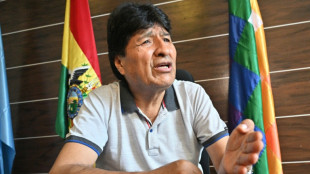
-
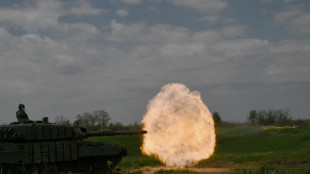 Ukraine, US sign minerals deal, tying Trump to Kyiv
Ukraine, US sign minerals deal, tying Trump to Kyiv
-
Phenomenons like Yamal born every 50 years: Inter's Inzaghi

-
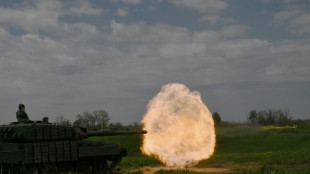 Ukraine, US say minerals deal ready as Kyiv hails sharing
Ukraine, US say minerals deal ready as Kyiv hails sharing
-
Global stocks mostly rise following mixed economic data
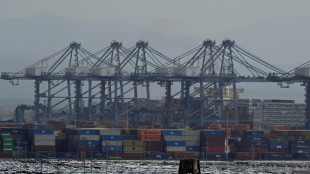
-
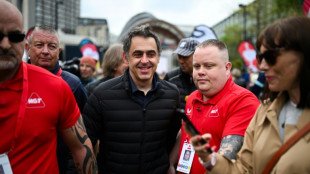 O'Sullivan says he must play better to win eighth snooker world title after seeing off Si Jiahui
O'Sullivan says he must play better to win eighth snooker world title after seeing off Si Jiahui
-
Sabalenka eases past Kostyuk into Madrid Open semis

Zelensky urges EU end 'quarrels', adopt oil sanctions on Russia
Ukraine's President Volodymyr Zelensky urged the European Union Monday to stop its "quarrels" and adopt fresh sanctions on Russia as the bloc's leaders sought a compromise deal with Hungary to target Moscow's key oil exports.
The 27-nation EU has spent weeks haggling over a proposed embargo on Russian oil but come up against stubborn resistance from Hungarian premier Viktor Orban.
Leaders meeting in Brussels were hoping to persuade Orban to accept a watered-down version of the ban that would keep the oil flowing by pipeline to a handful of countries, including Hungary.
Zelensky, in a video address, called on them to adopt "effective" sanctions against Russian oil to make the Kremlin pay the price for its war on Ukraine.
"All quarrels in Europe must end, internal disputes that only encourage Russia to put more and more pressure on you," Zelensky told the EU summit.
"It is time for you to be not separate, not fragments, but one whole."
Orban, often the odd man out in EU decision making, said a proposal only to stop oil deliveries to the EU by ship was a "good solution" as he arrived for the talks.
"It means that an atomic bomb won't be thrown on the Hungarian economy," he said.
But he warned that Budapest still needed a "guarantee" it could keep on receiving Russian oil by sea if anything happened to the pipeline crossing Ukraine.
Orban said "there is no agreement at all" yet.
He did not, however, threaten to veto the leaders' planned summit statement, arguing that it was the European Commission's job to fine-tune the sanctions package.
- 'Getting closer' -
A sixth wave of EU measures against Moscow was put on the table four weeks ago, but EU unity shown in implementing five earlier waves of unprecedented sanctions on Moscow appeared to have hit its limit.
The latest proposed compromise would exclude the Druzhba pipeline from the oil embargo and only impose sanctions on crude shipped to the EU by tanker vessel, which counts for two-thirds of Russian oil imports.
While French President Emmanuel Macron told reporters that a long-sought-after deal was "getting closer", others doubted that.
"I don't think we'll reach an agreement today," Estonian Prime Minister Kaja Kallas said ahead of the summit.
"Of course, we're going to have discussions, but everybody needs to be on board," she said, adding that she did not expect a solution before another summit to be held in late June.
An EU official said the leaders would attempt to find a "political agreement" on the Russian oil ban, with exceptions for specific countries worked out "as soon as possible".
EU sanctions require the backing of all member states and ambassadors fell short of finalising a deal just hours before the start of the summit.
- 'Orban's antics' -
Landlocked Hungary imports 65 percent of its oil from Russia through the Druzhba pipeline and, along with Slovakia and the Czech Republic, has asked for an exception from the import ban.
Diplomats said a two-year delay to the embargo had been granted to the countries concerned, but that Budapest wanted at least four years and nearly 800 million euros ($860 million) in EU funding to adapt its refineries.
"There is quite a lot of sympathy for Hungary's oil supply issues, which are great, despite the antics by Orban," an EU diplomat said on condition of anonymity.
Hungary's intransigence comes on the back of Orban's recent resounding re-election to a fourth term and some experts are sceptical about the official claims of alarm over a Russian oil ban.
burs-del/rmb/jj
H.E.Young--AMWN